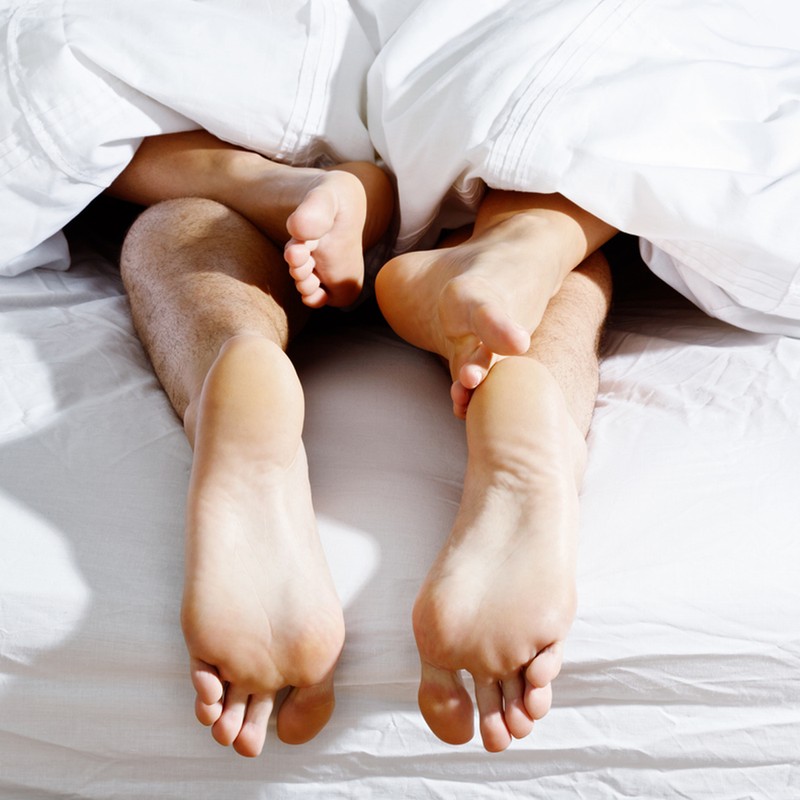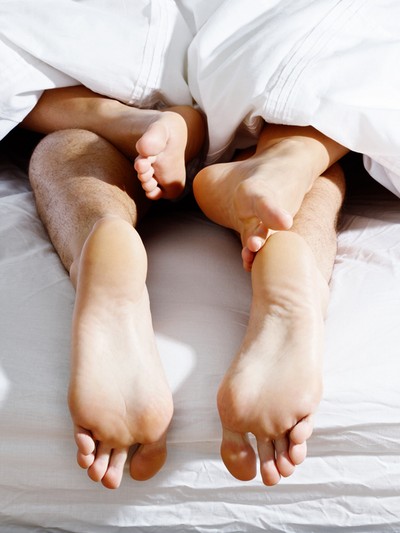

Boosting Your Libido In Later Life
UPDATED APRIL 2024
First of all, what do we mean by the term ‘libido’?
In short, your libido is your sexual desire – your emotional and mental energy towards sex. It’s also highly influenced by both testosterone and oestrogen levels. “Other terms for it include ‘sex drive’, and you might find that this fluctuates, which can be down to many factors including a lack of intimacy in your relationship, and hormonal factors such as during menstruation, or during the menopause,” explains Cara Thien, founder of women’s sexual wellness CBD brand Dani Pepper.
Is it natural to lose your sex drive past a certain age?
Experts will tell you it’s natural to experience a drop in libido past a certain point – plus, it’s far more common in women. Dr Albert Aka, consultant gynaecologist at The Gynae Centre, explains: “Although loss of sex drive is an issue for men, it is more commonly seen in women. In fact, it’s much more common than many people realise. But that doesn’t mean you need to put up with it. It’s normal for one’s sex drive to fluctuate throughout the month to some degree, but it does affect each woman differently. Some may experience a lack of sex drive for a short period of time, whereas others may have it for longer, and struggle with low libido more frequently.”
Andrea Balboni, a certified love, sex and relationship therapist at Zoe Clews & Associates, has this to add: “We’ve been taught that women after 50 are no longer sexually attractive or desirable. And we believe this. So, we feel less desirable and less sexy. And when we don’t feel very sexy, we often don’t want to have sex. How we perceive ourselves has the biggest impact on our sexuality. Do you see yourself as sensual, as sexy? Do you believe yourself to be desirable just as you are, no matter age or physical condition? Do you feel that older women who are sexual are also acceptable, wise and worthy of respect? If you believe you are sexy and you embody it – meaning you feel your sexiness from the inside out, you own it fully – then you’ll be sexy. This might also be a time for you to learn what it is that you want – and begin to ask for it. In some ancient traditions, the time in a woman’s life after menopause is known as the second spring. We (and our bodies) can now focus on new creative pursuits as we put our childbearing years behind us.”
What are some of main the symptoms and causes of low libido?
According to official NHS guidance, symptoms of a low libido can include lack of desire, anxiety performing sexual activities and a low level of interest in sex. Common causes of a low libido also include a range of factors, such as relationship problems, loss of sexual attraction, physical sexual problems, stress, anxiety and exhaustion, and depression. Much of this can also be linked to the menopause, when women’s bodies undergo huge changes emotionally, physically and hormonally.
Can different medications have an impact?
If your loss of libido is sudden or unexpected, it is possible it’s linked to medication – especially if you’re on something specific to see you through the menopause, such as HRT. Medication often comes with many side effects, so it could be that you are taking something that’s having an influence on your sex drive. “I see patients who are taking certain prescription drugs which can affect it,” agrees Dr Aka. “Particularly SSRI antidepressants and hormonal contraceptives – in particular the combined pill, ring patch, and progesterone-only pill. If this is the cause, an alternative form of contraception may be recommended.”
Tell us more about the hormone/menopause connection…
It’s a complex issue, but having gone through the menopause, a change in your hormones is inevitable and the consequences can be far-reaching. Nicki Williams, founder of Happy Hormones for Life, explains: “After the menopause, the ovaries stop producing oestrogen and progesterone plummets, and both of these are essential for desire and lubrication. Testosterone also drops, which impacts on cognitive function and affects concentration, focus and mood. The physical impact of all this hormonal deficiency is that desire drops, there’s vaginal dryness – or atrophy – and it’s much harder to achieve orgasm. If you’re running on cortisol, you’re in survival mode – it shuts everything else down and your libido is not going to be a priority. Stress also affects your thyroid function. Our thyroid regulates metabolism and gives energy to every cell in your body, from your gut to your brain to your sex hormones and, if your thyroid is not working optimally, it slows everything in your body down, causing brain fog, low mood, anxiety, fatigue, constipation and a low sex drive.”
Can lifestyle choices affect your libido, too?
“Your libido can be affected by lifestyle factors, including whether you smoke, how large your alcohol intake is, how you feel in and towards yourself, whether you have stressful or traumatic events happening in your life, and whether there are issues with your diet,” says Cara.
Stress and sedentary living are two major factors, too, says Andrea: “Stress and being in our heads disconnect us from our bodies where we experience much of our sexuality. A woman’s experience of pleasure is a whole-body experience and when she loses the connection to her body, she can experience a numbing out or deadening of her creative life force energy – her erotic energy. Also, many of us tend to spend the majority of our days sitting behind a computer screen. And with so much working from home, this easily bleeds into our ‘off’ hours. Free-flow, non-linear movement that feels fun, like dance, can help you to reconnect to your body and its natural sensual rhythms. Dropping into how your body wants to move at any given moment frees it to express or release tension or pent-up emotions which can block pleasure.”
Is it ever just psychological – isn’t it sometimes linked to depression?
Mental health plays a big part in how we feel, and self-esteem, body image and stress are all interlinked with sexual desire. “One of the main characteristics of depression is losing interest in everything, and that includes sex,” explains Dr Aka. “You may find that you no longer find pleasure in activities you once enjoyed. This can be the case with many mental illnesses. And if you’re receiving treatment for depression, as mentioned above, the medication can affect your sex drive.”
Andrea adds: “If it feels difficult to love and accept yourself, know that it’s in part because society and culture have yet to fully embrace and celebrate women fully through all ages, and especially in her wisdom years. Throughout our lives we hold ourselves back from experiencing pleasure fully. From shame around erotic expression to being told that we’re supposed to please our partners first, we fear being too sexy – or not sexy enough. And so, we dampen or suppress our sexuality, then struggle with feeling asexual or just not that attractive. This might be a good time to explore more what it is that has held you back from full sexual expression. And to begin to work through it so that you step fully into more of you.”
Is there anything else which contributes to a low sex drive?
“More and more women are experiencing pain during penetrative sex,” says Dr Aka. “This condition, called vaginismus, is where the muscles surrounding the vagina contract involuntarily. It can have a huge influence on a woman’s life and results in pain and difficulty having sex – even using fingers and tampons in severe cases. This can unconsciously cause the body to tense, which can lead to a cycle which is difficult to break. The brain unconsciously associates penetration with pain and so contracts. In some cases, sex is impossible. Even though the basis is psychosomatic, physical interventions can help – we have a 90% success rate in women we treat for this condition.”
So, if you want to, how can you look to increase your sex drive?
There are plenty of things you can do to increase your sex drive, including taking steps to reduce stress and anxiety; finding ways to boost self-confidence; exercising to lift your mood; cutting back on bad lifestyle habits like alcohol; and communicating with your partner and planning in time to be intimate and try new things. As Cara advises: “Make sure you are open and honest with your partner about what is happening and try to focus on your body and what you like, instead of focusing all of your energy on your partner. Take some alone time to figure out where and how you like to be touched, and introduce that to your partner. Sex doesn’t have to be all about penetration, and you may find that the more confident you feel in your own body, the more your sexual desire will peak.”
Andrea adds: “Reclaim your sexuality. If you’ve spent a lifetime of struggle with pleasure, know that it’s not too late for you to awaken and open the erotic within. Perhaps now is the best time for you to explore this aspect – what happens if you turn your gaze inwards and reclaim for yourself your experience of pleasure, starting now. Also, begin to notice what turns you on and what makes you feel more alive. Notice what connects you to your body and gets you out of your head. For many women, it’s movement and dance. For others it’s spending time in nature. And for others, it’s getting some space away from it all, slowing down and giving themselves time to step back into the world of their senses (hence sensuality).”
That said, it’s always worth seeing a professional for help if you are worried – especially if it is affecting your self-esteem, mental health and relationship. “If you are experiencing vaginal dryness and pain during sex, that is a red flag and absolutely something you should discuss with your doctor to find the root cause,” agrees Cara. “It’s always better to be safe than sorry and you deserve to have a fulfilled sex life, and to enjoy it.”
Any final words of wisdom?
“Learning is a lifetime process and that goes for your sexuality as well,” says Andrea. “As your body changes, so too does the map for pleasure in your body. What arouses you may look and feel different from how it’s been in the past. For some this will be a godsend, and for others a new mystery to explore.”
For more information and advice around libido, visit DaniPepper.com, Gynae-Centre.co.uk, ZoeClews-Hypnotherpay.co.uk and HappyHormonesForLife.com.
DISCLAIMER: Features published by SheerLuxe are not intended to treat, diagnose, cure or prevent any disease. Always seek the advice of your GP or another qualified healthcare provider for any questions you have regarding a medical condition, and before undertaking any diet, exercise or other health-related programme.
DISCLAIMER: We endeavour to always credit the correct original source of every image we use. If you think a credit may be incorrect, please contact us at info@sheerluxe.com.

